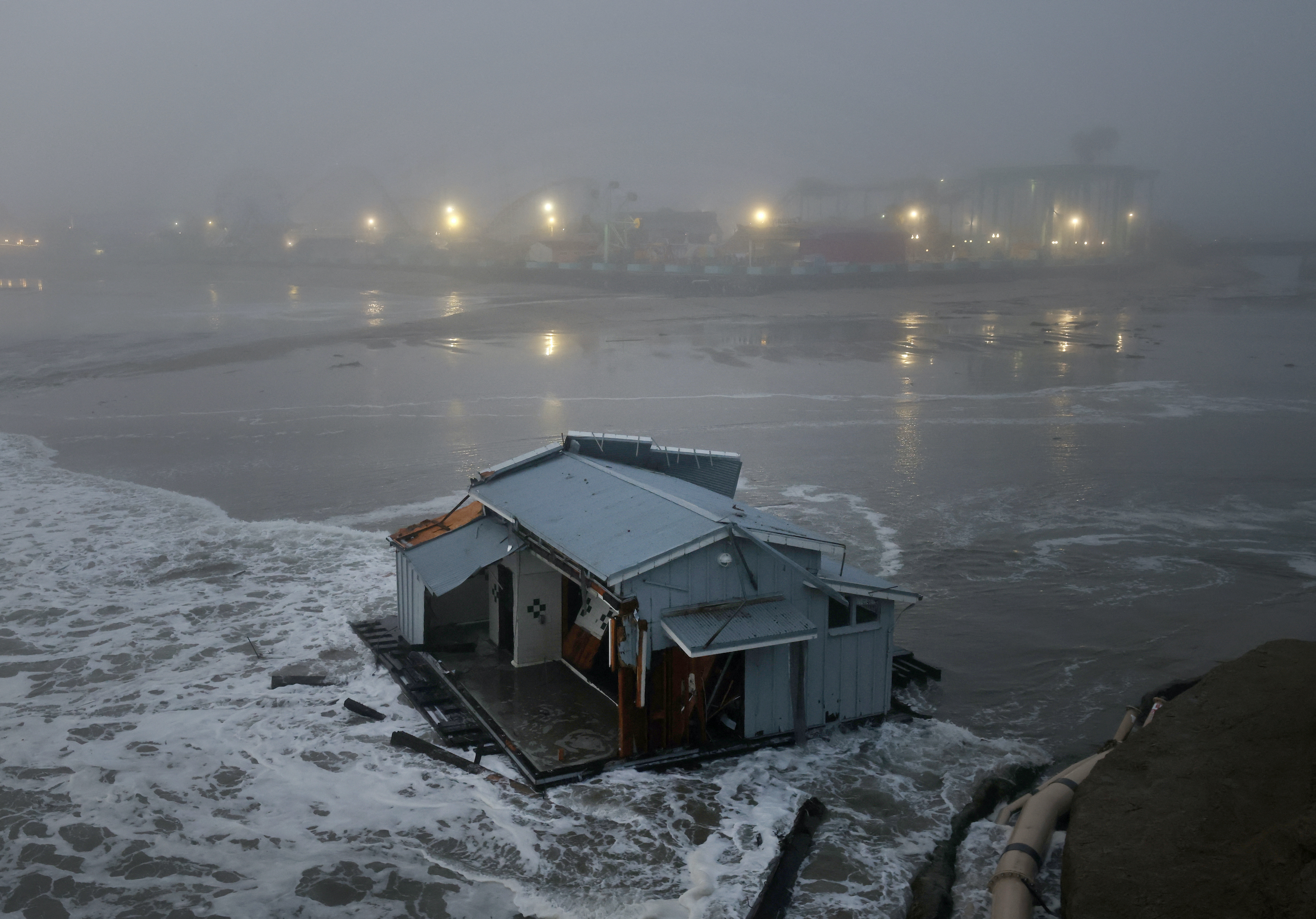Beaches in Southern and Central California faced dangerously high surf starting Dec. 23, with conditions weakening on Christmas Eve, according to the National Weather Service (NWS).
A man died Monday after a large wave trapped him beneath debris on a Santa Cruz County beach, officials said. His death was likely related to the storm pummeling the West Coast, according to the sheriff’s office.
High-surf warnings were downgraded on Tuesday in Los Angeles and Ventura counties, along with much of the central coast after waves reached 20 feet high in Morro Bay, NWS Meteorologist David Gomberg reported from the weather service office in Oxnard, California.
“We kind of hit the peak of the event last night and into this morning,” Gomberg told The Epoch Times.
Three construction workers were also rescued in Santa Cruz Monday after high surf ripped off a section of the historic Santa Cruz Wharf, plunging them into the ocean.
Two were rescued by a Santa Cruz Fire Department lifeguard unit, and one saved himself, the department reported on Facebook.
The incident prompted the city to close the wharf and Santa Cruz’s main beach areas Tuesday.
Wharf officials thanked those who participated in the rescue Monday afternoon.
“Everyone is safe and accounted for as well,” they wrote Monday. “The end of the wharf [that collapsed] has been closed off to the public for repairs and the victims were all authorized workers.”
The wharf and beaches will remain closed indefinitely, as hazardous debris continues to wash ashore, according to local officials.

The Hermosa Beach shoreline near Los Angeles on Sept. 4, 2020. Surf reached 8 feet at Hermosa Beach this week, according to the National Weather Service. (Lucy Nicholson/Reuters)
“We will be working to get an engineering report to ensure that we can reopen the wharf to the public,” officials said in the post.
In Hermosa Beach, about 20 miles southwest of Los Angeles, waves reportedly reached 6 to 8 feet, according to Gomberg.
About 70 miles northwest near Ventura Beach, surf reaching 12 feet high at Channel Islands Harbor caused operators to close the harbor entrance.
“It just gets too rough and choppy,” Gomberg said. “That’s a pretty big deal when they close the harbor.”
The high surf is typical for this time of year, Gomberg said. The storms form in the eastern Pacific Ocean, sending the high surf and swells to California’s coast.
The storm was expected to bring waves reaching 60 feet high as it gathered strength in the Pacific Northwest.
Some coastal cities were ordered to evacuate early Monday afternoon as the storm swells continued to grow.
Numerous automobile crashes also jammed Highway 17, the main roadway connecting the coast to San Jose and surrounding cities, according to Santa Cruz police.
“Heads up, everyone!” the police department wrote on social media.
The high surf also likely pulled another man into the ocean around noon Monday at Marina State Beach, about 13 miles south of Watsonville, according to Marina police.
Strong currents and high waves forced bystanders and some searchers to stop their efforts during the rescue. The man remained missing Monday night.
His name was not released Tuesday morning.
The Associated Press contributed to this report.














